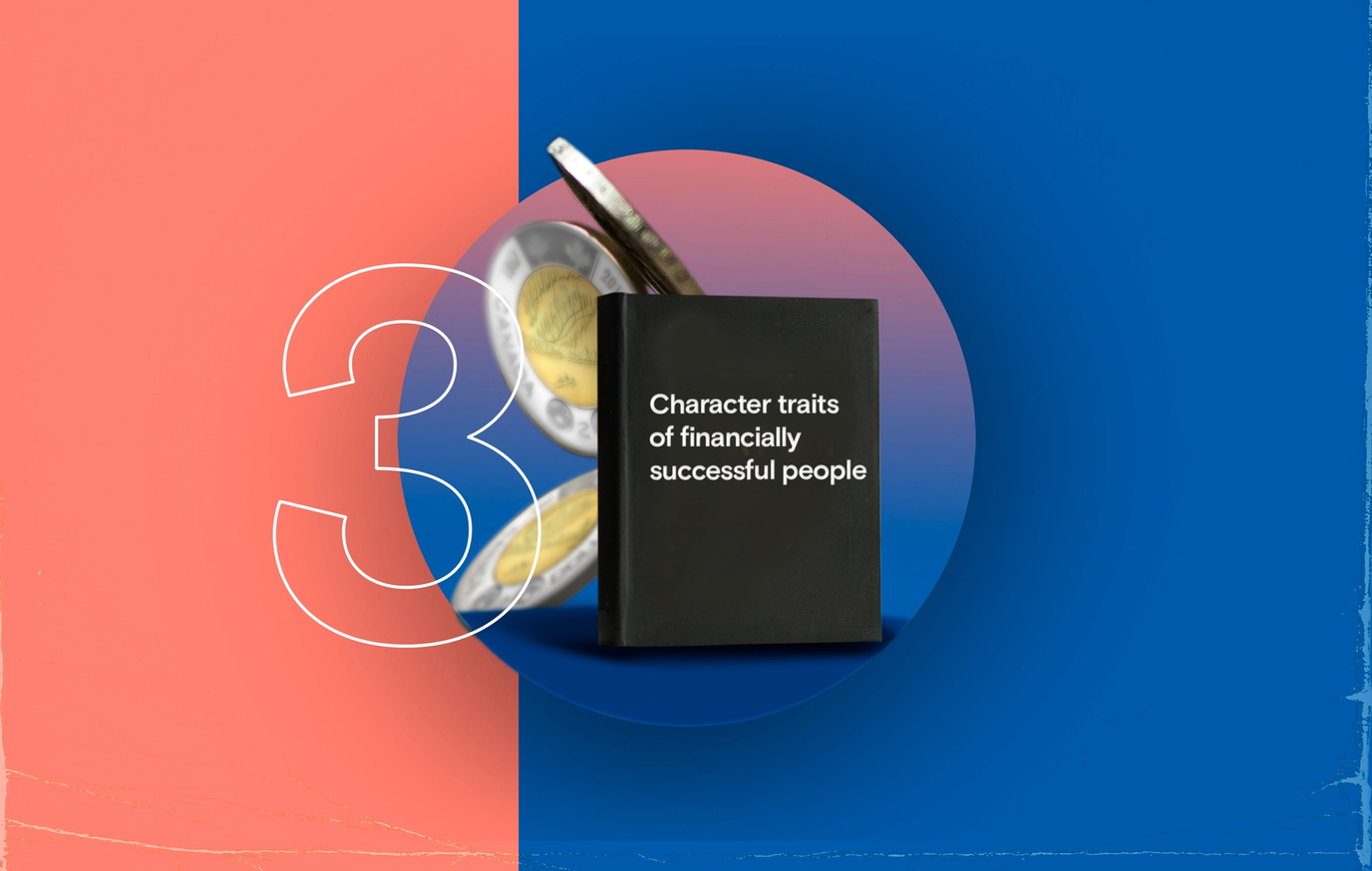Back to learn
3 Traits of financially successful people

Written By
Rounding it up
Studies show certain character traits can contribute to financial success.
One of these traits is organization, as it can help you budget better, maximize savings, and save time.
Self-awareness is also a plus; if you know exactly where your money is going, you’ll likelier make smarter financial decisions.
Confidence is known to increase motivation while reducing fear, and that applies to the world of personal finances too.
When we say millionaire is a mindset, we mean it. On top of being financially literate, studies show there are certain character traits that contribute to financial success. That makes us wonder — what are these magical traits?
Before jumping the gun and assuming a personality is the be-all and end-all of financial success, let’s make something clear. With socio-economic factors like gender pay gaps, systemic racism, unconscious bias, and more, financial success is a longer, and often harder, road for some than others. When we discuss these character traits, we encourage a balanced consideration of all these factors.
1. Staying organized
When it comes to personal finances, there is a seemingly endless list of things to keep track of; credit card payment deadlines, receipts, bills, tax paperwork, and of course, day-to-day budgeting. While it seems daunting, taking charge and being organized about your finances helps you save money and grow your wealth.
To begin, organization helps you budget better. This helps you see where your money is going, and encourages you to make changes when necessary. Second, staying on top of your paperwork means saving money. Keeping your receipts in a designated folder makes it easier for you to return and get a refund for a product you’re not happy with. Know what tax forms are where? Great, you’re more likely to be able to deduct expenses from your income, come tax season.
Lastly, being organized saves you time, and time is money! The less time you spend looking for a credit card statement, bill, or other financial document, the more time you have to focus on any investments, work on your side hustle, or just take care of yourself. Being organized frees up time, which can sometimes translate to freeing up money.

2. Self-awareness
Self-awareness may seem irrelevant in the world of personal finances, but this character trait helps you know exactly where your money is going, and how to adjust your behaviours if you’re spending too much.
Think about it — if you’re aware of every dollar you owe in student loans, mortgages, and credit card debt, you might think twice about borrowing money for things you don’t need. Additionally, people who are more self-aware are less likely to spend above their means and likelier to correct financially harmful behaviours. Financial self-awareness is also linked to saving and investing more than spending.
3. Confidence
Confidence is linked to greater financial success. That’s because people who feel more confident about their finances tend to be better at managing their day-to-day budget — therefore less likely to borrow money for their daily expenses — encouraging a state of financial well-being.
And this confidence isn’t always rooted in expansive financial knowledge. Studies actually show that the link between financial confidence and outcomes is quite tangible — people who have lower levels of financial knowledge, but higher confidence take advantage of good financial opportunities, specifically when it comes to everyday spending. In contrast, those who have expansive financial knowledge but low confidence can struggle with investing and saving for big purchases, like a car or buying your first home.
It’s no news that confidence increases motivation and resilience, while reducing fear and anxiety — but who knew it would have so much impact on your personal finances?
How can I channel these traits to become more successful?
Confidence isn’t taught overnight, it’s experienced. Building confidence starts with taking care of yourself physically, thinking long-term, and ensuring your decisions aren’t based on what people think. Meditation, seeking feedback, and writing things down have been linked to increased self-awareness. And organization, ultimately, takes practice and discipline.
It goes without saying that your income, location, and socio-economic status play a significant role in your ability to achieve what our society would deem financial success. While these character traits aren’t enough to assure your success, studies have shown that they certainly help.
Note: KOHO product information and/or features may have been updated since this blog post was published. Please refer to our KOHO Plans page for our most up to date account information!

Chrissy Kapralos
Chrissy is a freelance writer and editor who is passionate about making financial education accessible. She is also a communications advisor for the Ontario Ministry of Energy, Northern Development and Mines. When she isn't writing, you can find her practicing yoga or watching horror movies.